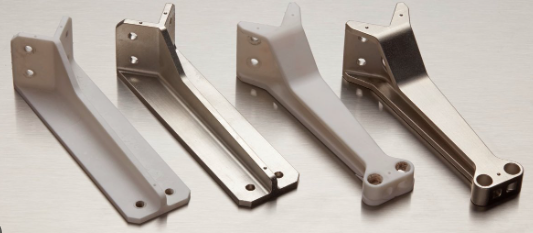What are industrial surface treatments used for?
In industrial manufacturing, the type of surface finish applied to materials and components is crucial. Surface treatments or coatings serve important functional purposes that impact durability, corrosion resistance, wear protection, electrical conductivity, aesthetics, and more. What exactly are industrial surface treatments and what are they used for?
What are surface treatments?
Surface treatments involve processes for altering the composition or properties of the outermost layer of a material’s surface. Common industrial techniques include painting, plating, anodising, powder coating, chemical conversion, and heat treating. These treatments create coatings with characteristics designed to enhance the base material’s end use in some way.
Before these surface treatments can take place, it is important to have a pretreated and clean surface so that the treatment can stick. Laser treating the surface is becoming a popular way to achieve this.
What are surface treatments used for?
A major application of industrial surface treatments is preventing corrosion. Coatings such as paint, nickel plating and anodising create a protective barrier that isolates the base metal from corrosive environments. This is critical for materials used in marine, oil and gas, infrastructure, and other harsh settings exposed to weathering. The versatility of industrial surface treatments makes them indispensable:
Automotive
Surface treatments enhance adhesion in car interiors, improve paint adhesion for exterior finishes, and promote the bonding of composite materials in lightweight vehicle components. A range of industry-standard coatings are available from specialists such as www.poeton.co.uk/standard-treatments.
Electronics
In the electronics industry, treatments optimise the performance of microchips, facilitate soldering processes, and ensure the reliable bonding of components.
Medical
Surface treatments enable the secure bonding of medical device components and ensure the biocompatibility of materials used in implants.
Packaging
Industrial surface treatments improve ink adhesion and enhance the print quality of packaging materials, contributing to branding and product appeal.
Aerospace
In aerospace applications, surface treatments are vital for enhancing the performance of materials exposed to extreme conditions, including corrosion resistance and composite bonding.
Renewable energy
Surface treatments play a key role in enhancing the efficiency and longevity of renewable energy technologies, such as solar panels and wind turbines.











